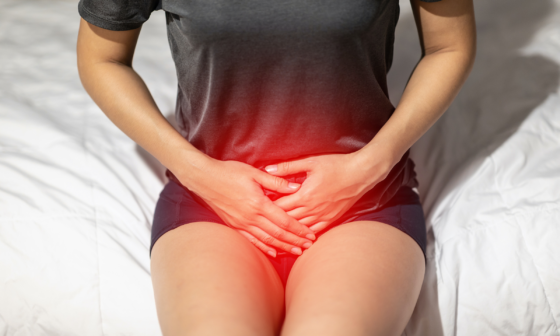Masturbation is a natural part of human sexuality, practiced by many people as a means of exploring their bodies or relieving sexual tension. However, some may choose to stop masturbating for various reasons—personal goals, enhancing sexual experiences with a partner, or improving their overall well-being. But exactly what happens when you stop masturbating? In this article, we’ll explore the potential physical, mental, and emotional effects of quitting masturbation, debunk common myths, and shed light on how abstaining can influence different aspects of your life.
Physical Effects of Stopping Masturbation
1. Heightened Sexual Sensitivity
One of the most noticeable effects of stopping masturbation is an increase in sexual sensitivity. When you take a break from frequent self-pleasure, your body may respond more intensely to sexual stimuli, making physical intimacy with a partner more pleasurable. This happens because your brain has a chance to reset its response to arousal, reducing desensitization that may come from repeated masturbation.
2. Boost in Sexual Performance
Some individuals experience improved sexual stamina and performance after quitting masturbation. Abstinence can help you redirect your sexual energy, leading to more focused and fulfilling sexual encounters with a partner. Additionally, refraining from frequent ejaculation allows your body to conserve energy, potentially enhancing your endurance during sex.
3. No Impact on Hormone Levels
Contrary to popular belief, stopping masturbation does not drastically affect your hormone levels. While sexual activity, including masturbation, does trigger a release of certain hormones such as dopamine and oxytocin, your body will naturally regulate these chemicals over time, maintaining balance whether you masturbate or not. There is no evidence to suggest that quitting masturbation leads to any major hormonal imbalance.
4. Erectile Function Improvements
Some men report improvements in erectile function after ceasing masturbation. Frequent masturbation, particularly when coupled with pornography, may create unrealistic expectations or overstimulation, potentially leading to difficulties in maintaining erections during real-life sexual encounters. Stopping can help reset these patterns and support a healthier sexual response.
Mental and Emotional Effects
1. Increased Focus and Productivity
Masturbation, for some, can become a habitual activity that distracts from daily responsibilities. By stopping, you may notice an improvement in your focus and productivity. Without the constant temptation of self-pleasure, individuals often feel more mentally clear, allowing them to direct their attention to work, hobbies, and other aspects of their lives.
2. Enhanced Self-Control
Choosing to quit masturbation requires a level of self-discipline that can extend into other areas of your life. The practice of controlling your urges can enhance your willpower, making it easier to manage other habits or behaviors that require restraint. This improvement in self-control may lead to better decision-making and more conscious actions in everyday situations.
3. Mood Swings and Emotional Withdrawal
In the first few days or weeks after stopping masturbation, some people experience mood fluctuations. This is often described as a form of “withdrawal” from the pleasurable sensations associated with self-pleasure. Masturbation triggers the release of dopamine, the brain’s feel-good chemical, so it’s natural to feel irritable or frustrated when that source of instant gratification is removed. However, these effects tend to subside as the body adjusts to the new routine.
4. Enhanced Emotional Connections
Without the regular escape into self-gratification, many people find that they are better able to connect emotionally with their partners. Abstaining from masturbation can lead to deeper intimacy, as sexual energy is redirected towards nurturing relationships and fostering stronger bonds. Couples may experience more meaningful sexual encounters and improved communication.
Long-term Effects on Relationships and Sexuality
1. Improved Sexual Relationships
Stopping masturbation can lead to more satisfying and intimate sexual relationships. When you refrain from solo sexual activity, you may find that your sexual desire is more focused on your partner. This heightened anticipation and energy can result in more passionate and connected sexual experiences, fostering a deeper emotional and physical bond.
2. Enhanced Intimacy
Abstaining from masturbation can also help enhance non-sexual intimacy. By shifting your focus away from solo pleasure and towards building emotional connections, you may notice improvements in your relationship dynamics. Couples often report feeling closer and more in tune with each other’s needs when they aren’t relying solely on self-pleasure.
3. A Shift in Sexual Desires
Over time, individuals who stop masturbating often find that their sexual desires become less impulsive and more manageable. This doesn’t mean that your sex drive will disappear, but rather that it becomes more balanced, with sexual urges surfacing in more appropriate and controllable ways.
Debunking Common Myths
Myth 1: Stopping Masturbation Causes Prostate Problems
Some people believe that stopping masturbation increases the risk of prostate issues, but there is no scientific evidence to support this claim. Regular ejaculation through sexual activity or even nocturnal emissions (wet dreams) helps maintain prostate health, so there’s no need to worry if you choose to stop masturbating.
Myth 2: Stopping Masturbation Leads to Infertility
There is no direct connection between masturbation and fertility. Infertility is typically caused by underlying medical issues unrelated to masturbation habits. Stopping will not harm your reproductive health or ability to have children.
Myth 3: Abstaining from Masturbation Leads to Sexual Frustration
While it’s normal to experience some level of sexual frustration in the initial stages of abstinence, this feeling typically fades over time. Your body adjusts to the new routine, and sexual desires become more manageable. In fact, many people report a greater sense of control and a more balanced approach to sexuality after stopping masturbation.
Stopping masturbation can have a range of effects, from heightened sexual sensitivity to improved focus and self-control. While some individuals may experience initial challenges, such as mood swings or frustration, the long-term benefits often include enhanced sexual relationships, improved emotional connections, and greater overall well-being. Ultimately, the decision to stop masturbating is a personal one, and the effects will vary depending on the individual. Whether you choose to take a break or quit altogether, it’s important to listen to your body and make choices that align with your health and lifestyle goals.






